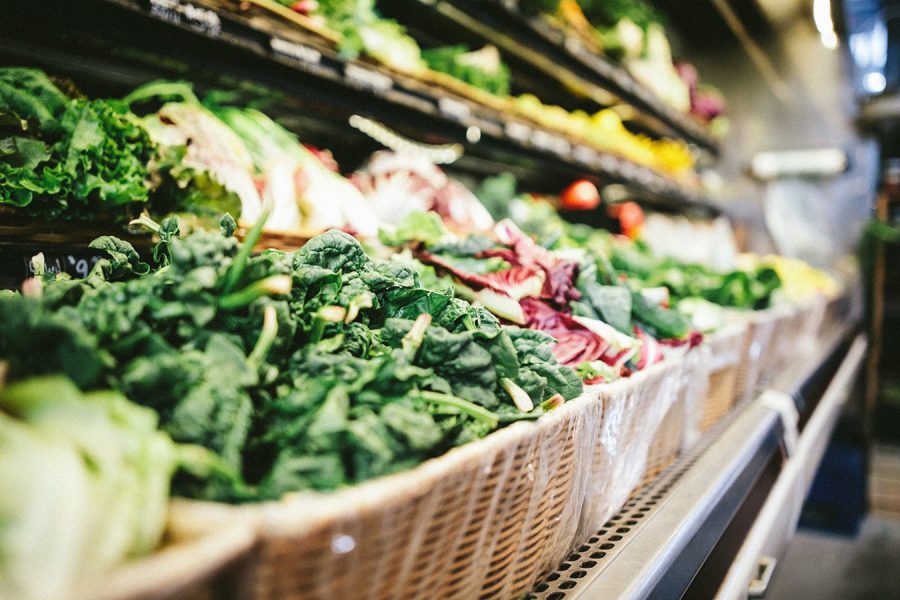
‘Sustainability. It’s the only thing that makes sense’ – An Interview with Kerry Melville, Belfast Food Network (1/2)
06/03/2020
We joined Kerry Melville to find out more about her role as Project Coordinator at the Belfast Food Network. Kerry gives us an insight into her past experience with working on local regeneration projects in the city, the importance of creating a dialogue around sustainability, and the six main themes the Belfast Food Network is working under, in order to shift the agenda on food sustainability in Northern Ireland.
Could you tell me a little bit about what your role as a Project Coordinator for the Belfast Food Network consists of and what motivates you to work in this sector?
I have always been interested in sustainability. For me, it is the only thing that makes sense. I think all environmentalists when growing up, have an awakening of consciousness to the things that are happening around them. I was brought up abroad; an experience that opened my eyes to a vast amount of culture, different ways of living, and the various ways humans interact with the planet and the environment. It became really obvious that there were and still are huge differences across the world in how humans are treated and what they have access to, which is deeply unfair to me.
For me and my generation in the ’80s and ’90s, we were witness to a plethora of environmental issues such as acid rain, the ozone layer, flooding, and deforestation in the ’90s was at its absolute peak. Ultimately these events were painting a global picture of unsustainable practices, and although I didn’t have the language at the time, I just knew it didn’t feel right.
So, I completed a degree in third world studies which was really interesting. It explained the inter-relationship between the North and South of the planet, and how our development has shifted and changed over time. The thing that seemed to make the biggest impact was money and trade, and how that shifted how people moved and reacted. Then I completed a Master’s in Sustainable Development at UCL, which was amazing because not only were they speaking a language that I understood, but they were talking about solutions. It was incredible to see a whole army of people working collectively to try and shift this agenda. I moved to Belfast after completing my masters and worked essentially in bottom-up, regeneration projects. One of the most successful areas that I worked on, in terms of impact, was The Village (GVRT), where we utterly transformed the space. I then moved through various parts of the city, working on projects in deprived areas until I took up my role as Project Coordinator for the Belfast Food Network. Outside of the sustainability dialogue, food for me is something that is deeply embedded in my life, so I was fortunate when these two interests collided in my current role. The position itself is interesting in that it is a path that has never been trodden before. We have never had Sustainable Food Cities before, and now we are starting to create a huge, joined-up dialogue around it, and there is a massive coalescence around the issue at every scale. Ultimately, the last five years in this role have been an absolutely amazing journey, and because it is constantly changing, I never stop learning.
For those who are unfamiliar with the Belfast Food Network, could you illustrate how it got started and how its work is impacting on the city’s food system?
Sustainable Food Cities (SFC) was set up by three organisations; Sustain, Soil Association and the Brighton and Hove Food Partnership. Each of these organisations had been looking at food for a long period of time and wanted to translate lobbying work into actual collaborative partnerships, on the basis that at a state level, stronger partnerships can be made. They were very keen on targeting area space, rather than just cities because it allowed for the inclusion of rural areas too, and so they got together and managed to secure £1 million to start it off. Tom Andrews, who developed and initiated the programme, travelled around the UK for over two years, building connections and finding the right cities to get involved. He selected thirteen cities and invited them to put a bid forward to be one of the founding cities. The attraction to becoming a founding city was securing funding, in part, by SFC for three years, and being able to be part of the process in delivering and building the network.
At the time, Jim Kitchen was very interested in this. He ran Sustainable NI at the time and was also the Sustainability Commissioner. He spent close to two years putting together an Advisory Group and an Action Plan and put in a bid for Belfast to become an SFC which was successful. So, when I started with the Belfast Food Network, we restructured things slightly so that the things we were working on, reflected the SFC because we only exist because of SFC. Our structure includes six main themes;
- The first is the promotion of sustainable food, which included everything from social media feeds to changing government policy.
- The second surrounds food poverty and diet. We simply cannot have a conversation about food without talking about food poverty because there are so many that have so much and so many that have none at all.
- The third is community skills, which includes everything from community skills to community supported agriculture projects and cooking skills. Really it is about trying to get people reconnected with food and where it comes from because the distance between people and food is as great as it has ever been.
- The fourth is a diverse economy, in that, how do we get people out of supermarkets and into local markets? How do we put new physical markets in place? How do we start revitalising communities, and breathe life into the streets with bakeries, butchers and greengrocers?
- The fifth is procurement. This is unbelievably important, and we are desperately trying to find mechanisms to get fresh, local and seasonal food onto the plates in schools, hospitals and care homes. This would not only help the local economy and shorten supply chains, but it would mean strengthening our food security in a country which is unbelievably insecure. For instance, the amount of food we import here is terrifying.
- The sixth surrounds two areas. The first part is food waste, and we are very lucky in Belfast to have a brilliant food waste collection service, which is not the same as the rest of the UK in general. The second part is about reducing the ecological footprint of the food system itself. This is a huge area and essentially underpins everything. Ultimately, it is about creating a more holistic view of the full impact of food that we are bringing into this country and diversifying our system. For instance, approximately 5% of our land is used for growing vegetables. Many would argue that this is because of our landscape, but vegetables can be very forgiving. This is something that we are actually looking at quite seriously at the moment, so we can find opportunities to utilise empty fields for vegetables.
To find out more about the Belfast Food Network, or how you are your business could get involved, click on the link below or contact Kerry Melville directly.

